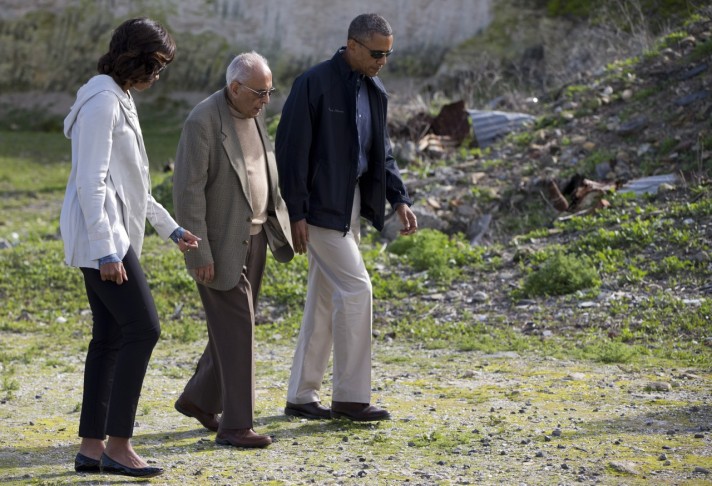If he had not become a politician, or a great orator, perhaps Barack Hussein Obama could have become a very good novelist. I cannot forget the eulogy he gave at former South African President, Nelson Mandela’s memorial service back in 2013. Now that I have travelled with Mr Obama through his Dreams from My Father, I cannot help wondering how deep in thought he may have been about his own father while paying such a great tribute to an even greater man.
If he were not the 44th President of the United States of America, Mr Obama could have gone on to win a Pulitzer for his astute thoughts on culture, cultural differences, cultural and religious heritage, the law and the Constitution, among other subjects. Having read his two books, Dreams from My Father and The Audacity of Hope: Thoughts on Reclaiming the American Dream, intently over the last few weeks, I hope that this articulate, thoughtful and caring man will go on to write a few more books, not just memoirs, which may endure long after the sun sets at the end of two difficult, but ultimately successful terms as the Democratic saviour to George W Bush’s destructive terms as US President.
We should not remember him as the man who killed bin-Laden, but rather for trying to make our world better.
Mr Obama lays the foundations of all his hopes and dreams for America, not just for himself, in his remarkable memoir which is nicely chronicled in three independent parts. First, as a young, rebellious boy growing up in Hawaii and Indonesia, then as a young social and community activist in the poorest boroughs of his home town, Chicago, and finally during his life-defining pilgrimage to the country of his origins, Kenya. As the first black American President, Mr Obama’s place in history was already secured. But it is perhaps more accurate and pertinent to mark Mr Obama as the first man from a cultural minority to ascend to a throne left vacant by the slain President of Camelot fame.
Because Mr Obama has no direct links to the infamous history of slavery in America, his critics have unfairly tried to taint him as not being an African American. Yet if you read through his memoirs quietly and attentively, he is every bit an American and African as you and me. While the image and influence of his father looms throughout his sentimental, but eloquently constructed narrative, the overriding theme of alienation unintentionally allows the reader to feel part of Barry’s journey, even if it will always be a small part. Basically, he invites you into his life. I know of no other US President in our era that had that ability. Mr Obama has persistently argued against classifying the self in terms of ancient and redundant racist ideologies, but in Dreams from My Father he reveals his own pain of dealing with both racial and class discrimination.
The book also substantiates the falseness of another myth about Barack Obama. It chronicles his life from the disadvantage of being under-privileged rather than part of a social élite and the political status quo. He leaves us with some revealing impressions on the legend of Malcolm X, but is perhaps merely polite in his acknowledgement of the influences of both Martin Luther King Jnr and Nelson Mandela on his life. In fact, these two fellow Nobel Peace Prize winners are barely mentioned. More importantly, it is his father’s legacy that lays the foundation of his chosen path in life.
He aligns his own sense of alienation with that of his late father, but never slaps himself on the back for overcoming the problems typical of the black American, past or present. Mr Obama’s story has not yet run its course. Indeed, my own reading of Mr Obama’s memoir was perhaps untimely. His second term as US President ends next year. Indeed, during the nineteen nineties, I had followed Bill Clinton’s trailblazing and come from behind campaign to become the 42nd president of the USA closely, relying mostly on Time Magazine and Newsweek. I wonder if my thoughts would have been altered as a traditional supporter of Democratic campaigns had I come across Obama’s book then.
But, by that time, Nelson Mandela’s Long Walk to Freedom already occupied a cherished space on my bookshelf.
When Dreams from my Father was first published by Times Books in 1995 it was modestly received, but after Obama’s 2004 Illinois Senate victory, this introspective and compelling memoir was re-published by Three Rivers Press and, needless to say, it became a New York Times best seller. I think Obama’s book will hold sway with those with an interest in our inherited cultural diversity, more than those with the usual formulaic interest in politics. It was inspiring from beginning to end.
